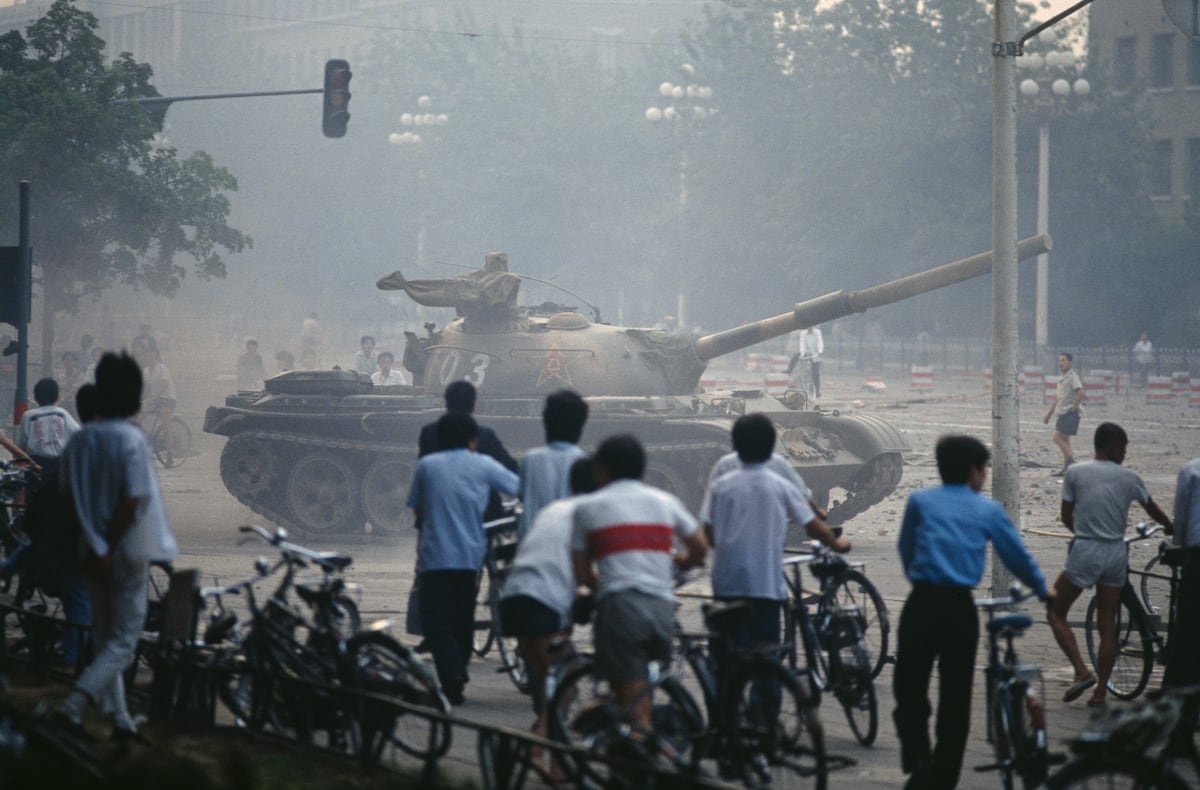Tiananmen Massacre: The Silenced Tragedy 35 Years Later
Wang Wei remembers that he couldn't look away from the TV screen on June 4, 1989, when he was just five years old. “I didn't understand anything, but it's one of those memories that never goes away,” recalls this Spaniard of Chinese origin who prefers to remain anonymous. On this day, when China's army violently suppressed weeks of pro-democracy protests, a memory was etched into the minds of many. With the 35th anniversary of the Tiananmen massacre approaching, the silence and censorship surrounding the event remain strong in China.
The infamous imagery of tanks and soldiers opening fire on unarmed protestors around Tiananmen Square was broadcast worldwide, thanks to the presence of dozens of foreign journalists in Beijing. Despite the scale of the atrocity, with victim estimates ranging from hundreds to several thousand, the Chinese Communist Party has never taken responsibility. The official stance is silence, an erasure of this history from the public's consciousness.
Tiananmen is the biggest taboo within China, and few dare to discuss it openly. The Chinese government has systematically suppressed the memory of this event through arrests, censorship, and a carefully cultivated environment of fear and ignorance. Many young Chinese have only a vague understanding of what happened, and some are completely unaware.
Li Hua, who was four years old during the spring of 1989, remembers a time when “the elders spoke very softly” and her grandfather kept her away from public places. In her household, the subject was a forbidden territory. Like many others, Li discovered the truth later in life, through peers rather than family discussions. She now lives in Europe and expresses deep concerns over China's regression in terms of freedom and predicts things will worsen.
Sun Ning, another witness, only learned about the massacre during his university years in a friend's dormitory, where a video showing the army's brutal crackdown left the room in silent shock. For Sun, the government's readiness to go to any lengths, including the violent quelling of its people, is a stark reminder to maintain a low profile.
The Youth's Disconnection and Skepticism
Both Sun and Li hope for a future where accountability is demanded, yet younger voices reveal varying levels of awareness and skepticism. Liu Hao, 26, acknowledges hearsay and claims his father mentioned the events but doubts the authenticity of the widely known Western narratives. Similarly, Yang Tao, 23, notes his realization about the extent of censorship in China upon learning about Tiananmen from classmates.
In Hong Kong, once a haven for commemorating Tiananmen, the authorities' grip has tightened considerably following the 2020 enactment of the National Security Law. This crackdown reflects Beijing's broader efforts to prevent dissent. Human Rights Watch reports ongoing monitoring and imprisonment of individuals trying to honor the massacre.
China's evolution since 1989, from an economic minnow to a global giant, rides on a paradox of economic liberalization and extreme political repression. While economic achievements lend the Communist Party a façade of legitimacy, the memory of Tiananmen is buried under strict censorship and state control.
Today, under Xi Jinping's leadership, the Communist Party actively reinterprets the 1989 demonstrations to discredit them as counter-revolutionary movements. Public remembrance is practically impossible, shielding the events from collective memory. However, scholars argue that only significant economic downturns capable of unsettling the burgeoning middle class hold the potential to rekindle mass protests in China.
- According to Daniel Leese, a China expert, the Communist Party actively censors and rewrites the historical narrative of Tiananmen, branding dissenting views as 'historical nihilism.' Leese points out that under Xi Jinping, China's control over student and public discourse has intensified compared to a decade ago.
- Leese highlights the contrast in how China handled its historical narratives post-Cultural Revolution and Tiananmen. While open discussions were permissible during the open era beginning in 1978, today’s government quashes any divergence from the official line. The fear of retribution is significant even among Chinese students abroad.
- Despite this, anniversaries of the massacre once sparked social media activism with coded messages and symbols such as '35th of May.' However, this cat-and-mouse game with censors has dwindled, especially under tighter surveillance regimes. Hong Kong, recognized for its large annual memorial events, is also seeing stricter control since the National Security Law's implementation.






